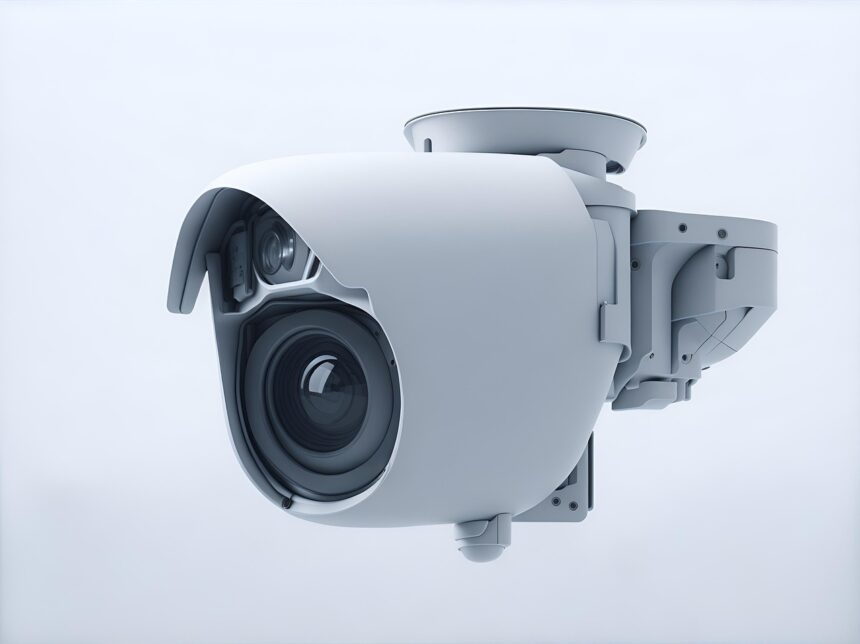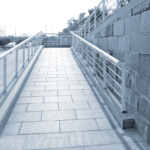Home security has been a major concern to families and individuals willing to keep their homes and loved ones safe. Technology has been a significant factor in enhancing the way security systems work over the years and now, artificial intelligence is changing this industry more than ever. Not only is AI making systems smarter but also more proactive, which allows homeowners to avoid these risks before they occur instead of only responding to them after.
Artificial intelligence introduces increased convenience, customization, and precision to home protection today. Since they can identify abnormal behavior to learn the patterns of homeowners, artificial intelligence-based security systems are making the world a safer place. This development is redefining the way individuals approach the issue of home security and shifting expectations regarding what a dependable security solution ought to provide.
Smarter Detection of Threats
Advanced threat detection is one of the most effective means through which AI is enhancing home security. Some standard alarm systems tended to use primitive alarm triggers e.g. motion or door sensor, which occasionally caused false alarms. However, using artificial intelligence, it is possible to examine the patterns of behavior and differentiate between normality and possible danger. This implies that you will receive less unnecessary notifications but when something out of the ordinary occurs, then you will receive an accurate notification.
To illustrate, AI-enhanced cameras are now able to identify an approaching animal, deliveryman, or a burglar attempting to enter the premises. The systems reduce the stresses associated with false alarms that usually occur frequently because of lacking a context to understand what is being detected in the indication. Homeowners will feel at ease that their systems can learn and understand true world conditions instead of operating on learners.
Integration with Everyday Routines
More personal AI-enabled systems also learn the habits of both members of the household. Such systems can learn patterns over time, like when members of the family tend to enter the house and when they tend to leave, or when the lights tend to be on or off. Understanding these behaviors means that AI will be able to notice suspicious activity and inform the homeowner that something is out of the ordinary.
This malleability transcends surveillance. An example is that, AI can be fitted with smart locks, lights and even heating to show that there is a person in a house when it is unoccupied. This and other automation will increase the level of convenience but will also serve effectively to deter would-be trespassers who might be surveying the premises.
Enhancing Outdoor Security
Outdoor security solutions are also seeing a huge impact on artificial intelligence. Smart devices such as a driveway alarm that used to be a basic motion detector can now be connected to AI to reveal more information about it. Rather than only indicating that motion has been identified, AI can be used to figure out whether the motion was caused by a vehicle, an individual, or a creature. This enables outdoor surveillance to be much more effective and less likely to result in needless disruptions.
AI outdoor cameras can support unorthodox actions and monitor when a person is loitering along a fence or walking up to the front door on multiple occasions. These systems are capable of giving instant notifications to house owners and even calling emergency services in case the circumstance seems critical. AI also means availability of protection not just on the front door, but on the property as a whole.
The Role of Predictive Security
Another potential area of AI application in home security is its predictive nature. AI systems are not limited to reacting to attacks but are able to predict threats using information gathered by multiple sensors and historical patterns of action. This gives them the opportunity to recommend preventive measures, such as locking doors, switching on the exterior lights or setting a driveway alarm prior to a potential threat being converted into a literal danger.
Predictive security places a greater level of control in the hands of the homeowner. Examples include an AI system identifying a potential attempt at burglary like continuously checking in on the same time of the day by strangers. By recognizing these red flags, homeowners can make timely decisions and do whatever they can to bolster their defense before an issue arises.
Balancing Technology and Privacy
Although the advantages of AI-enabled home security are undeniable, concerns about privacy and data utilization also arise. Some AI systems require uninterrupted surveillance and data gathering, something that can raise concerns among homeowners regarding information storage methods and data retrieval by others. Having good data protection features built-in to AI systems is as crucial as the security it offers against intruders.
Homeowners would want to find providers which are open about the ways they work with the data, as well as have safe ways of storage. The trade-off between convenience and safety and responsible data management will likely keep its place in the discourse around home security technology as AI advances.
Conclusion
AI is evolving the field of home security as the systems become smarter, flexible and proactive. AI is transforming the way families protect their homes as it moves beyond smarter detection to protection that is predictive. When combined with AI, devices like the driveway alarm are getting more sophisticated, providing not just detection but insightful context on what is occurring out there beyond the home.
More innovations in this area may be expected as new technology keeps changing people. Although one should be mindful of the privacy issues that tech may bring, the advantages of AI on developing safer and more responsive home security systems cannot be underestimated. The future of home protection is not necessarily associated with tougher locks and alarms but a smarter technology working alongside families to ensure their safety.















